Impact Story
Kampala
Her City Kampala was implemented by the women-led, youth-serving and community-focused organisation HADE (Holistic Actions for Development and Empowerment) with support from Dreamtown. Together with additional partners and funding from DANIDA, the project was enrolled in the informal settlement Kamwanyi during 9 months in 2023.
Using the Her City Toolbox, a rooftop in Kamwanyi was co-designed with young women and girls from the community. The project presents a pathway to overcome the unequal access to urban space, in which urban citizens and local civil society are supported to take lead and inspire formal planning actors to include more diverse perspectives in decision making. With a focus on including young women and girls from informal settlements, the project has re-thought, co-planned and designed a more sustainable public space together. The project explores and promotes female-led inclusive urban planning and design in Kampala.
Facts
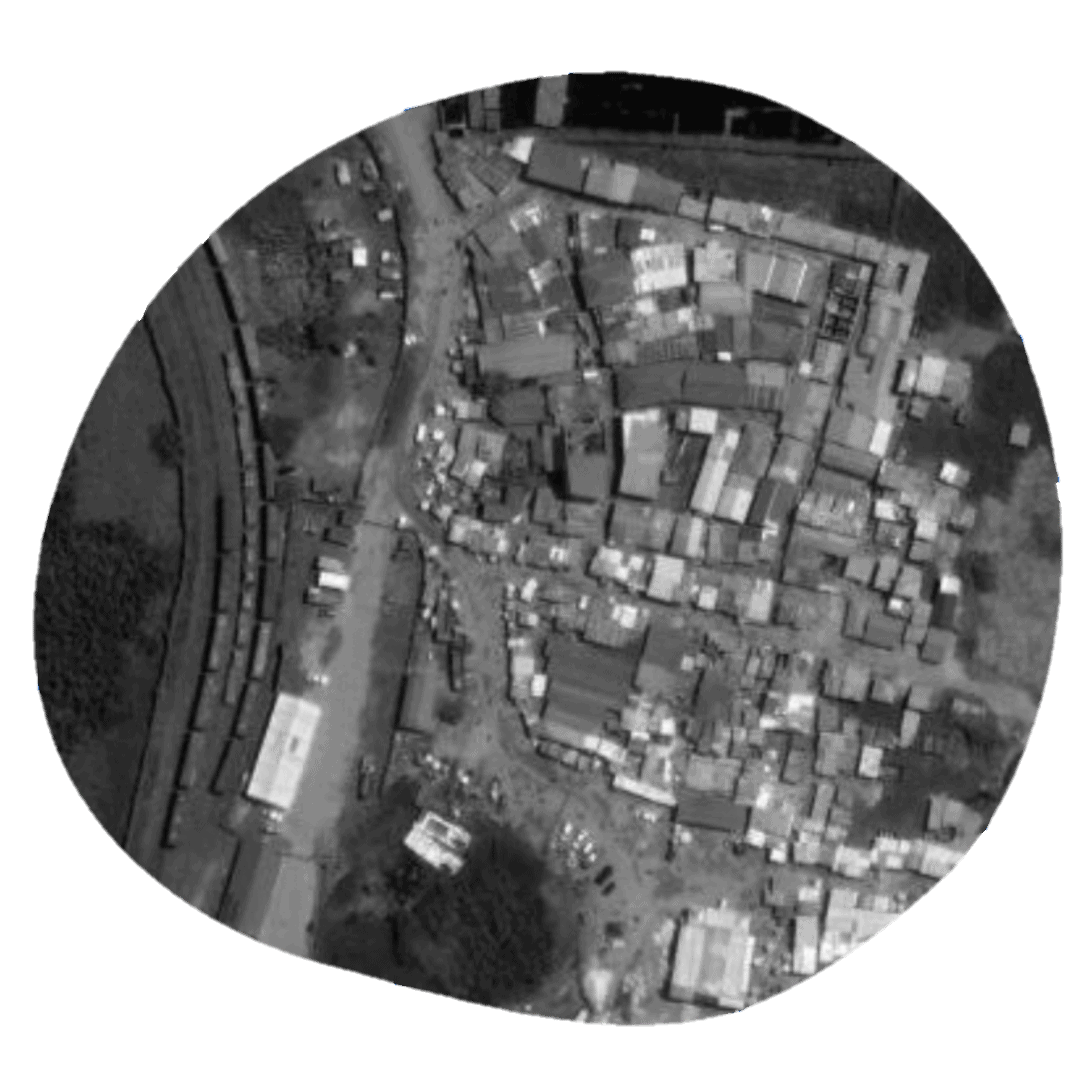
Category: Civil society, Grassroot
Location: Kamwanyi – Port bell Luzira on the shores of Lake Victoria and Arua city, Kampala, Uganda
Time: April 2023 – December 2023
Partner: Holistic Action for Development and empowerment (HADE), Dreamtown, CISU, Footmarks Initiative Uganda, Saromio Foundation, African Fibre Innovation Hub, psychological Resilience services, Center for Green cities. With support from UN-Habitat and Shared City Foundation. Funded by DANIDA.
Participants: Over 50 girls and young women living in and around Kamwanyi and urban professionals
Her Story
Challenges
60% of the urban population in Kampala live in unplanned areas as a result of the city being incapable of providing adequate housing, public services, green spaces, and decent livelihood opportunities. These challenges related to the rapid urbanisation tend to disproportionately affect women. This is particularly severe in unplanned urban areas, where women make up 71% of the informal workforce. Women are at the forefront of managing the needs of their families and communities, however, they are not given the opportunity to participate in the city making. Some participating women in the project were illiterate, making the hesitation and hurdles to participate higher, something the team had to address when conducting trainings and workshops.
In a dense community, access to urban spaces is hard to come by and often results in unsafe urban spaces for women. Implementing the project the team experienced challenges in regard to land ownership and they were met with reluctance and suspicion from landowners. HADE negotiated with different landowners in the community and was finally given access to develop the rooftop when a community member provided it for public use.
Solutions
HADE trained participating girls and women in using tools for site specific assessments. The team targeted efforts to empower illiterate women to participate in community planning, implementation and monitoring. Some of the more technical tools were a struggle for a small community based organisation to use and were then replaced with analog versions that worked better in the setting. After the assessment workshops and in-depth discussions with landowners in the area, a rooftop was selected for re-design.
The rooftop was then re-designed and transformed to a green space based on the participants’ needs and visions. Some of the ideas generated during workshops was a roof cover, comfortable seating, water taps, green walls, and a library. As of december 2023 the finalised design solution is being built with the help of local designers and engineers. The finalised space is meant to provide a green space where women feel safe to hang out throughout the day.
Opportunities
The project has served as an awareness raising process among participants and partners, on the value of involving girls’ perspectives in public space development. Participants report that they feel empowered after the process, being equipped with practical tools for planning and design, as well as knowledge in construction from the architecture, engineer and interior designer. The possibility to network with professionals and understand the urban development process was also appreciated.
Impact
The project has provided a practical understanding of how to facilitate local inclusive urban planning and design projects. This has resulted in guidelines for female-led urban design to use similarly in other projects among partners.
There have also resulted in spin-off initiatives by HADE and the participants from the community, showcasing its vide impact:
Her City Market Corner: A dedicated container shop, functioning as a one-stop centre for all women’s craft products within the community, empowering women through craft and commerce
Juice-preneur: Joy’s Successful Venture: The young entrepreneur Joy Makunkasi has established a thriving juice bar in her community. Using the initial funds received from participating in Her City activities, as her startup capital, Joy now generates a daily profit offering fresh and delightful juice options to community members. She plans to position her fridge at the Her City Market corner where she will provide fresh juice for people accessing the public green space as well as vending it in the community.
Her City Savings Group: Empowering Women through Financial Independence was initiated by the technical working group. The group voluntarily adopted a weekly savings plan and organises financial literacy sessions on WhatsApp, hosting external financial experts for social evening talks. The intention is to further foster financial independence and dispel stereotypes surrounding women’s financial discipline.
Her City Fair: Empowering Women in Urban Planning. The Her City Fair is a unique space cultivated by the Her City project, dedicated to inspiring and empowering women in the field of urban planning and development. This initiative has successfully attracted women-led CSOs at the Youth CSO Villa, prompting the ongoing organisation of the Her City Fair, particularly during March, coinciding with International Women’s Day.
Her City Street Painting: Empowering Through Art and Opportunity. Under the motto “Nothing for Us Without Us,” the Her City Street Painting project persists in creating talent and job opportunities for women in the realm of creative arts, specifically street painting and urban planning. This initiative provides employment opportunities as well as serves as a powerful means of conveying messages that dismantle local stereotypes.
Her City Night of Lights: A light installation during festive season. Inspired by the activities organised on the upgraded green space rooftop, where the Her City project hosted a series of movie nights. During the Christmas holiday the area will be lit with Christmas lights and festive messages.
Her City Magazine: A community publication dedicated to documenting the triumphant stories of young women who have overcome challenges in male-dominated urban environments
Lessons Learned
Active community participation was key in the development of needs based action plans and recommendations for the space. The catalytic effect of engaging young women in the urban development process is evident in the results from the Her City Kampala project, delivering both financial initiatives and social cohesion. Participating girls and young women have provided expertise and insights to the Her City activities.
The negotiation process as an important learning for future projects, and that access to land cannot be taken for granted when working with urban development.
Results
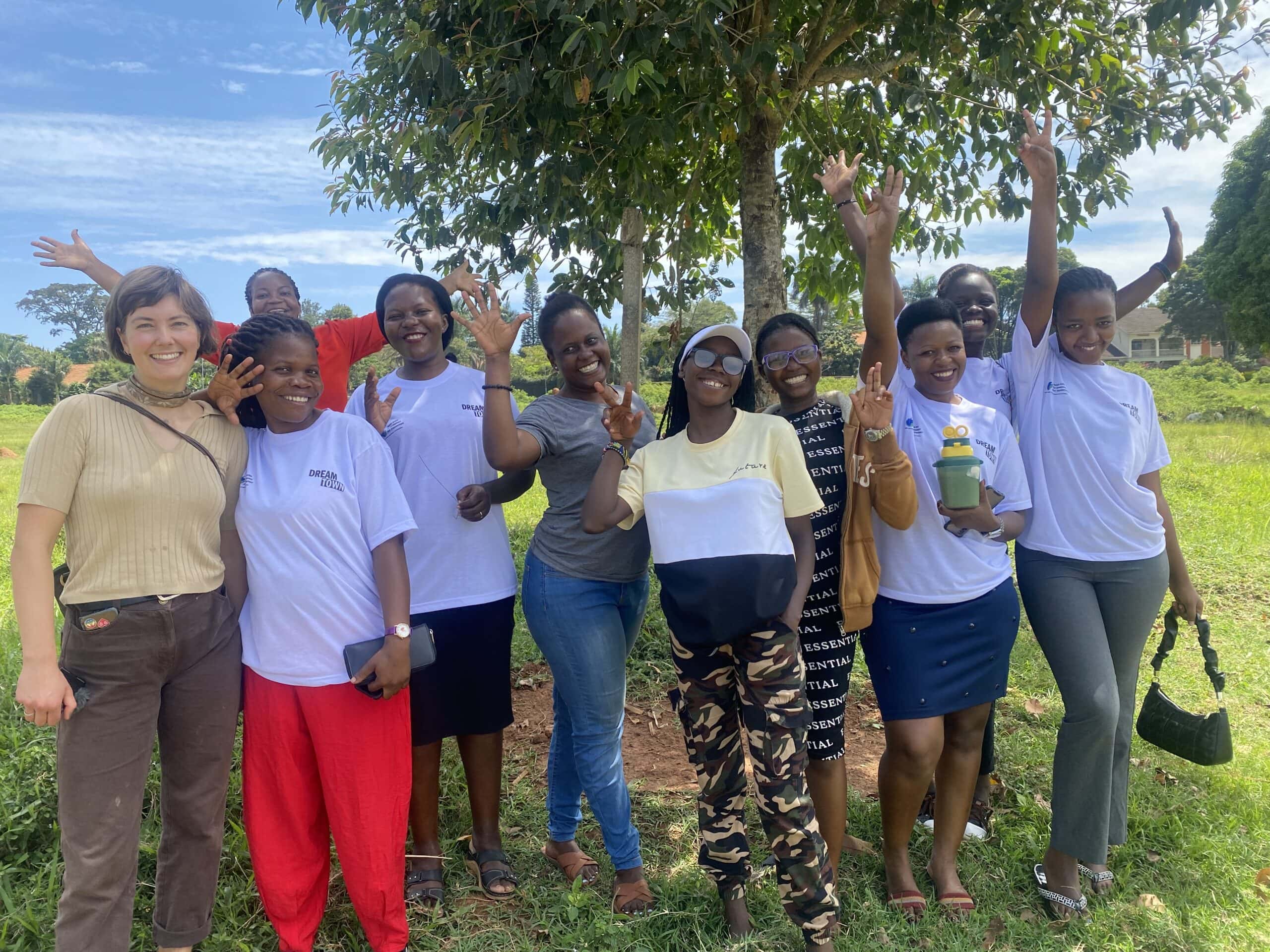
Block 1 – Stakeholder engagement:
A multi-stakeholder team of over 50 girls living in and around Kamwanyi, and 10 professional; 5 Female CSO representatives who formed the Technical Working Group, 5 professionals in engineering, architecture and interior designing. Local decision makers, representatives from the municipality, chiefs, households, business owners, etc. were invited to participate in the project launch and show their support.
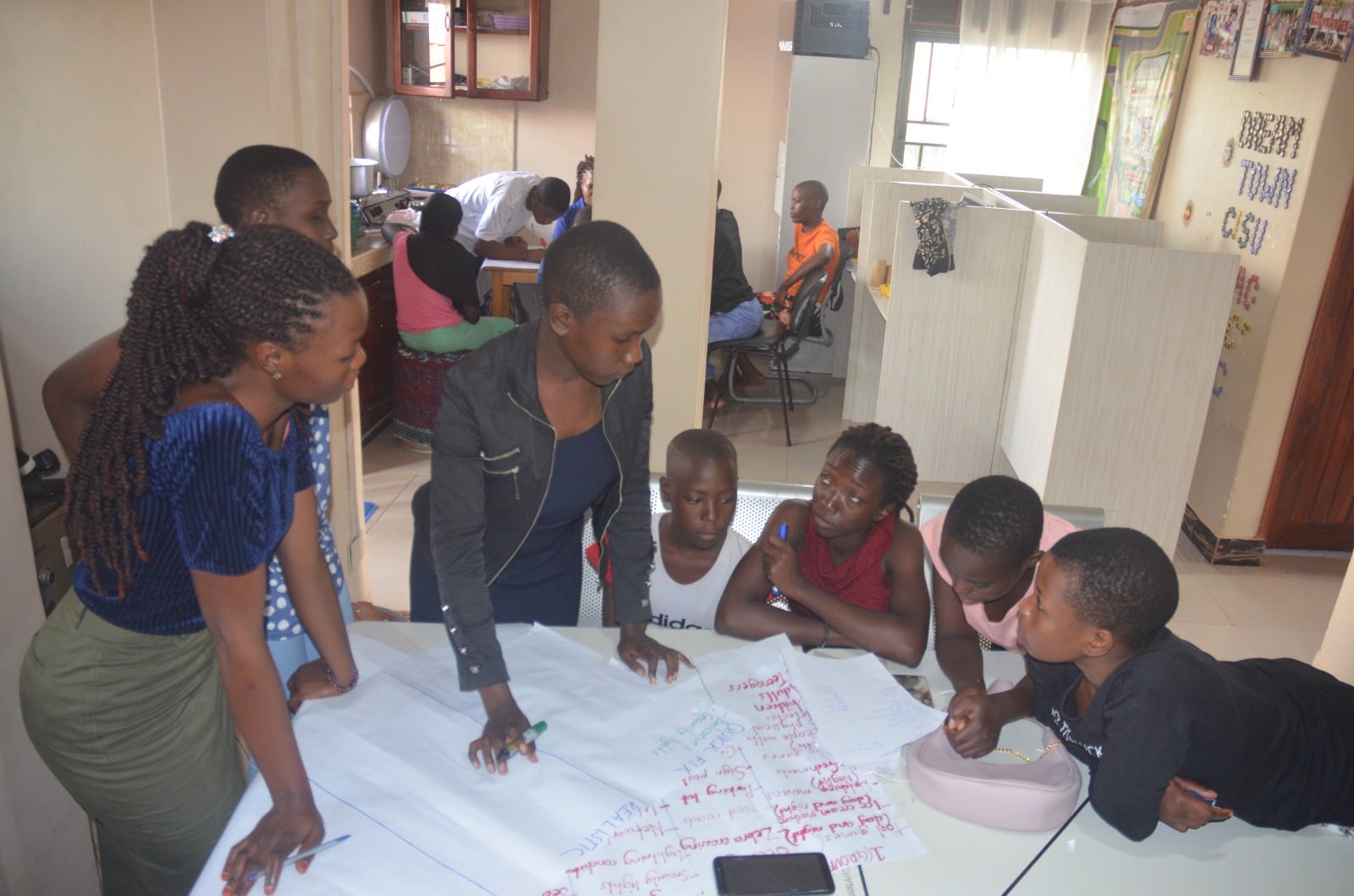
Block 2: City wide assessment
A city level analysis based on girls and young women’s observations and a list with their top priority spaces to be improved.
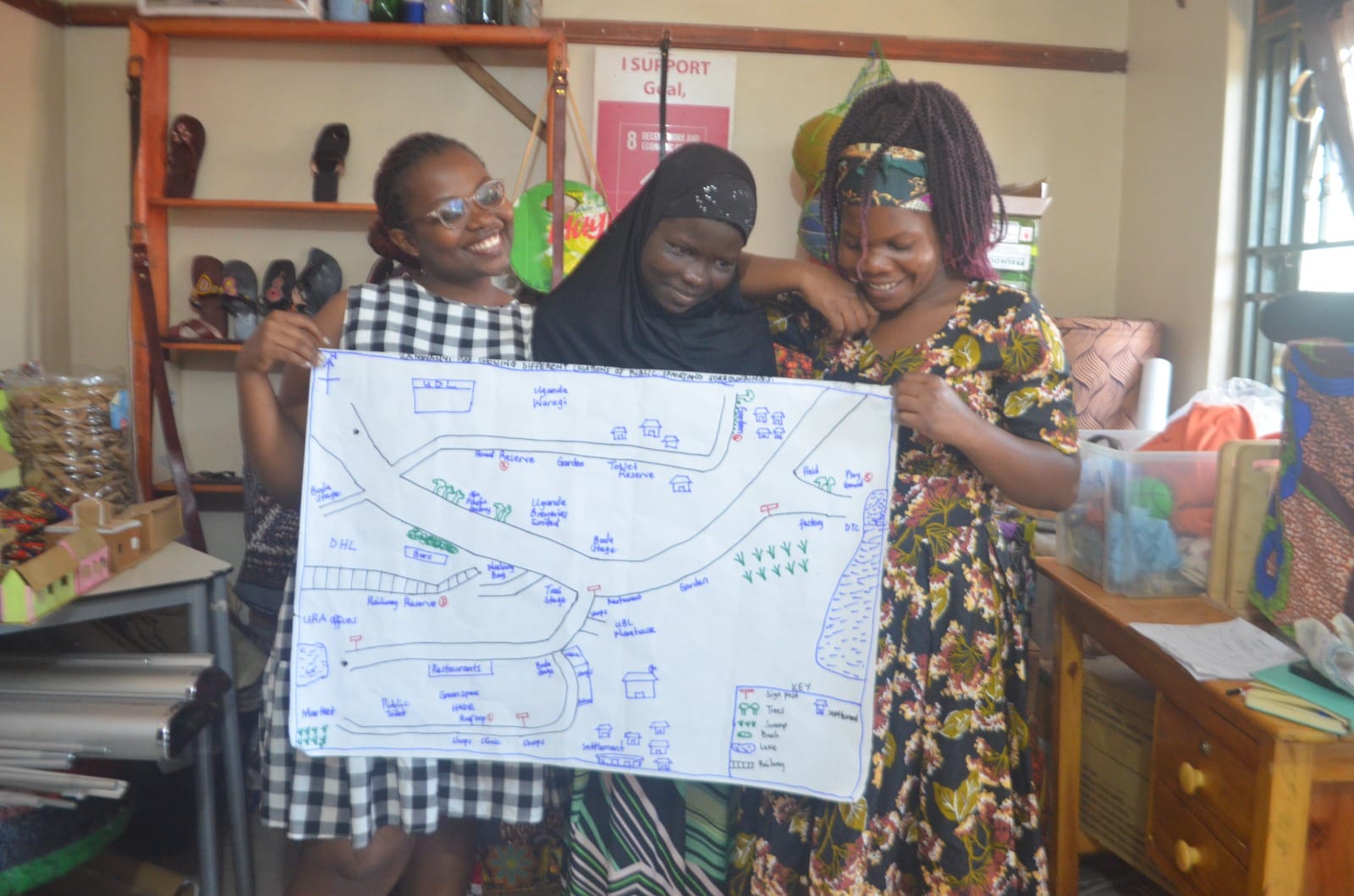
Block 3: Site specific assessment
Collecting quantitative and qualitative data by girls and young women on the state of Kamwanyi that is considered a top priority for improvement.
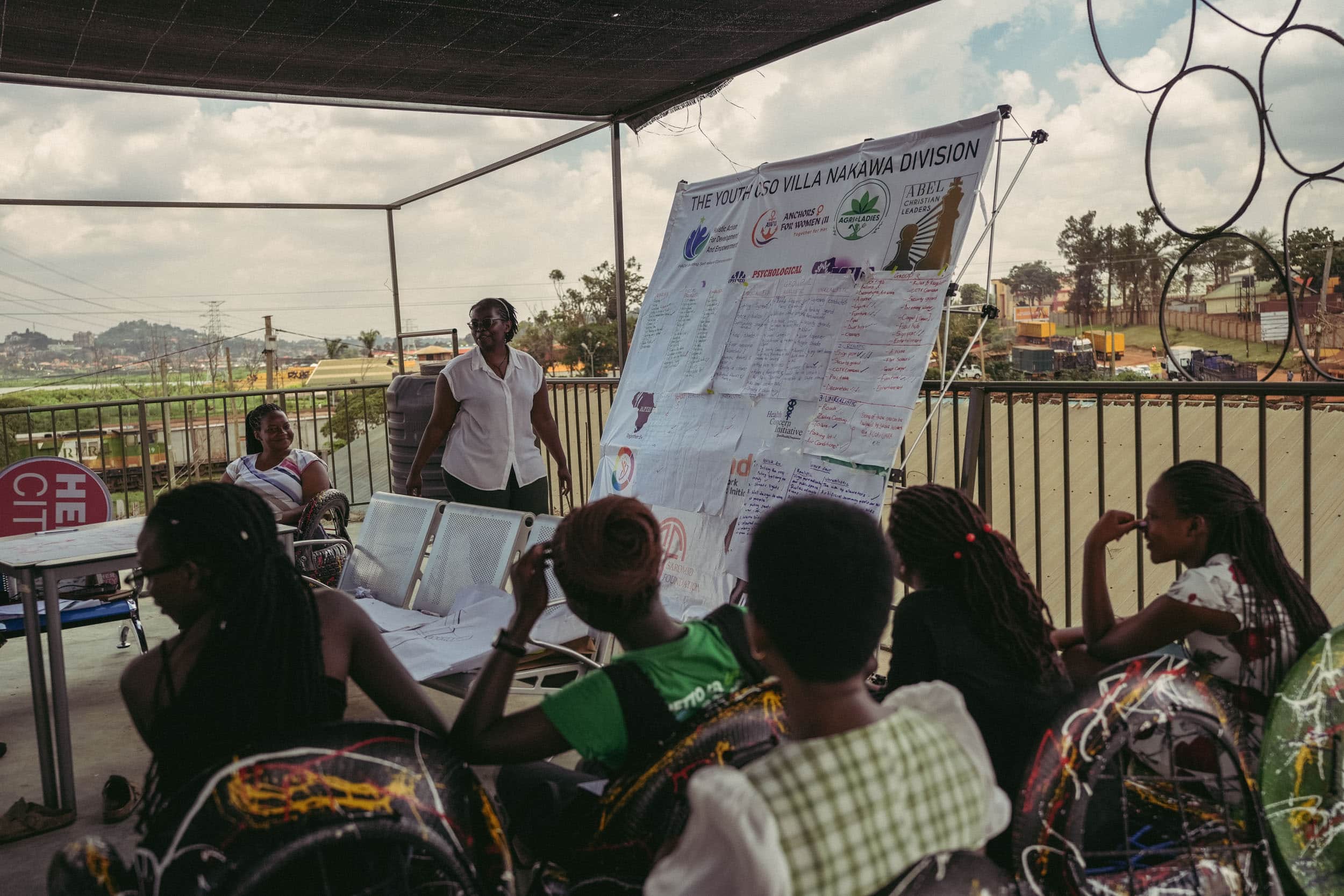
Block 4: Analysing challenges
A joint vision for the space based on a detailed analysis of the girls’ needs and current privileges in the space.
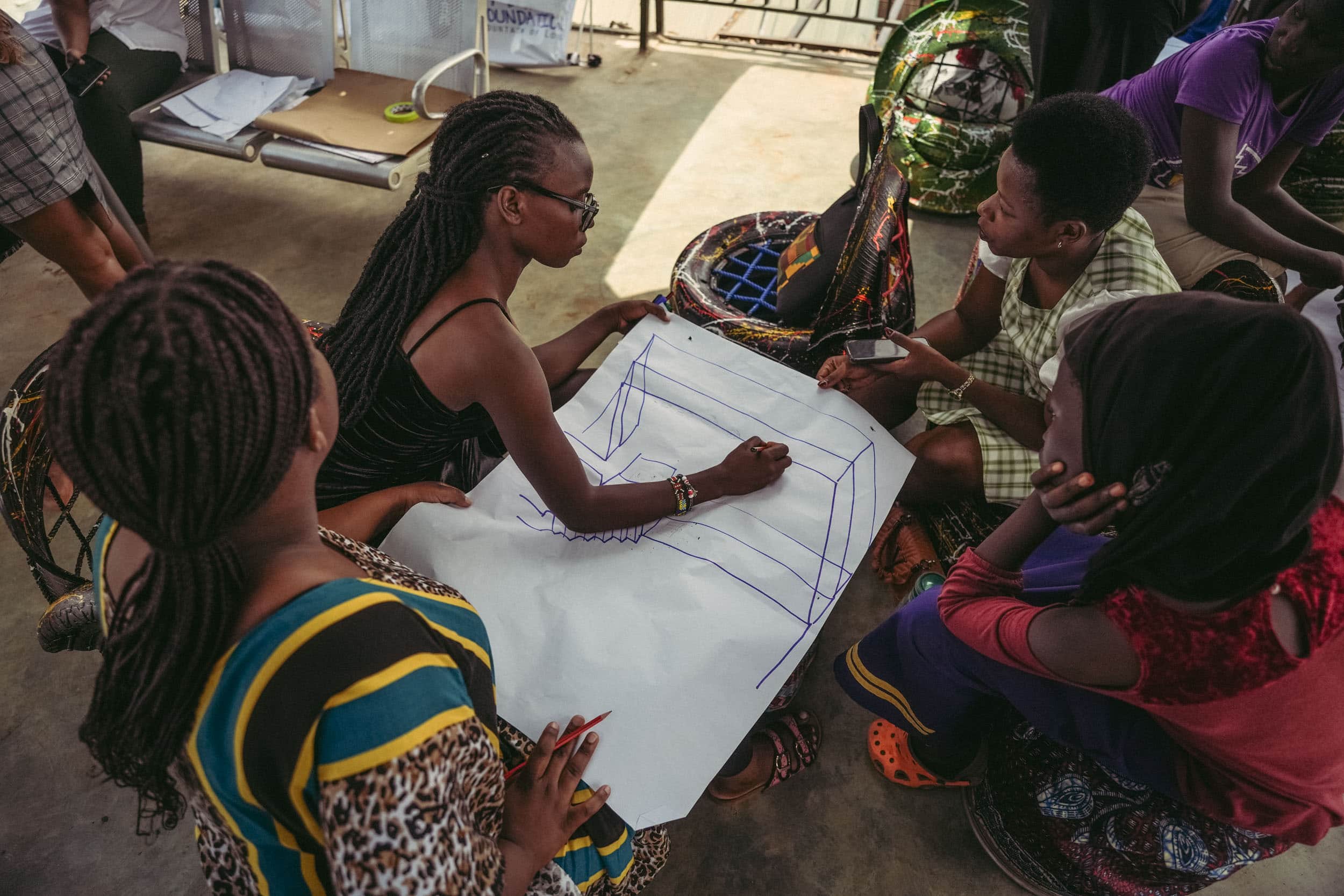
Block 6: Recommendations
A joint action plan for the space where girls and professionals negotiate ways forward for implementation and potential impact of the project
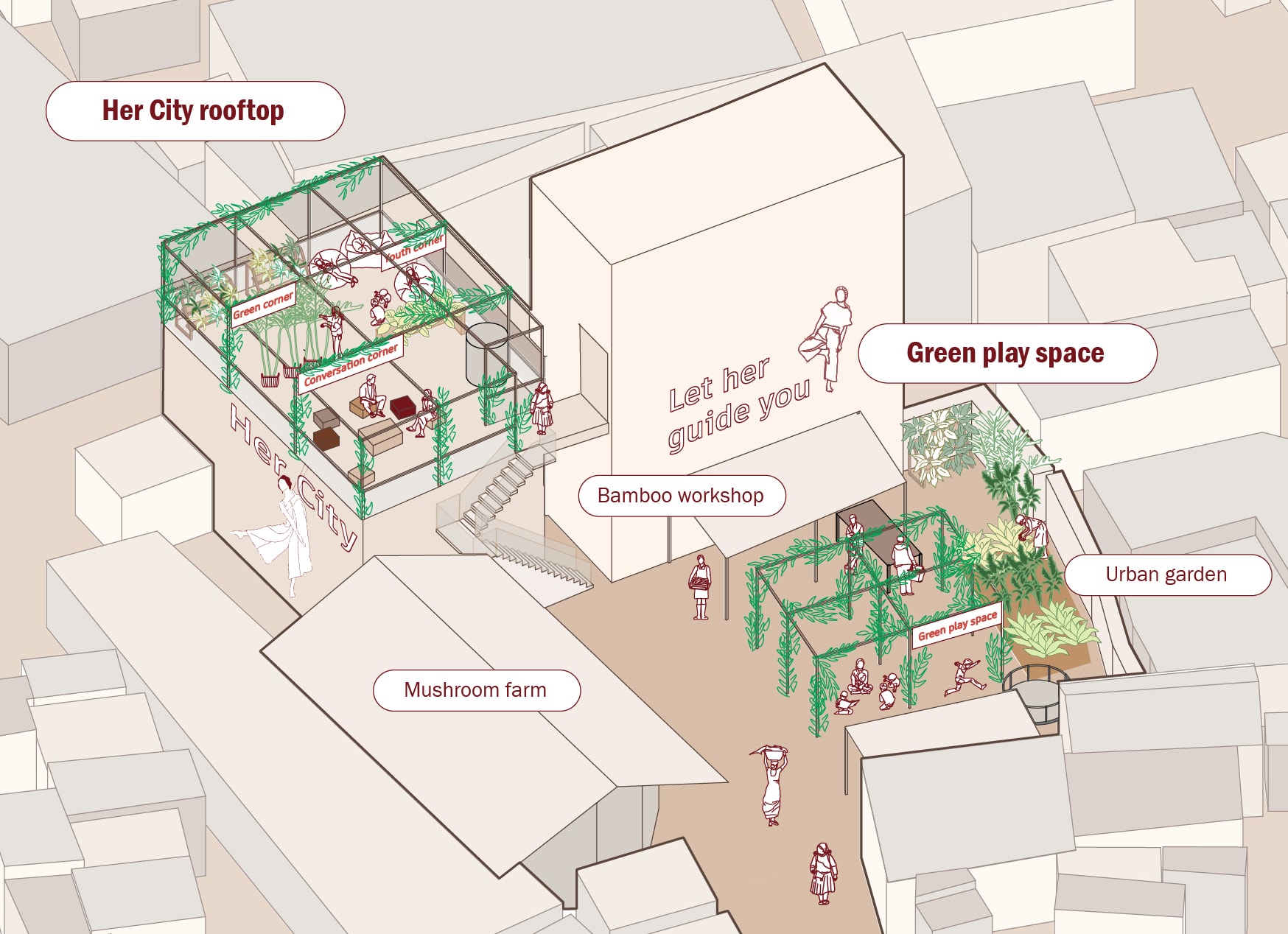
Block 7: Action plans
Detailed plans collaboratively developed by the girls and professionals for the construction phase including cost estimations and maintenance plans.
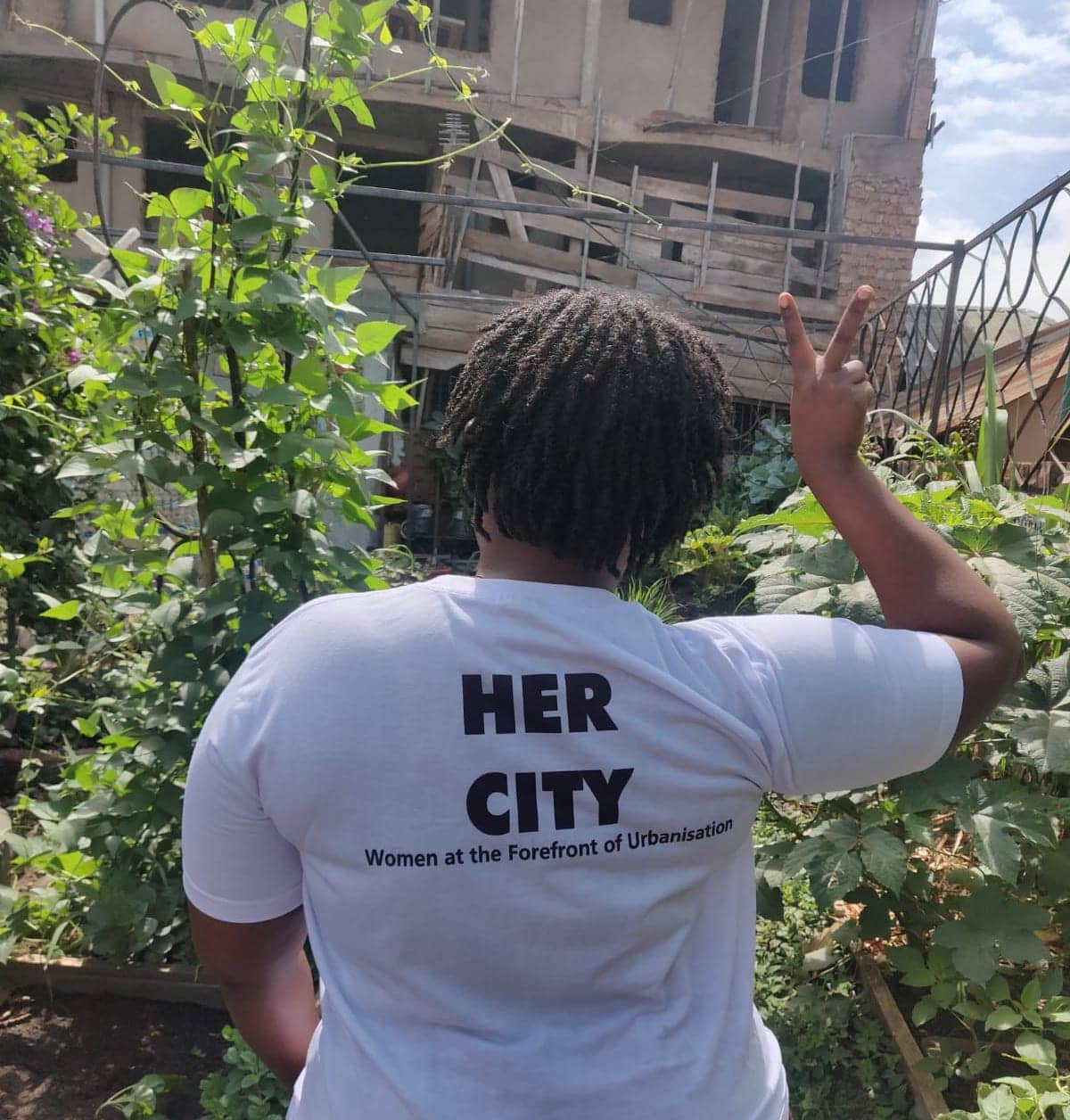
Block 8: Sharing results
Approval to move forward and start construction from decision-makers and community and spreading of knowledge gained throughout the project.
Read more:
https://www.hadeug.org/
Related SDGs
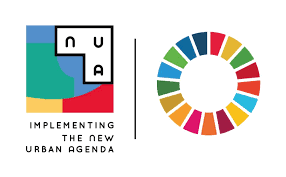
The project in Kampala relates to the 2030 Agenda Sustainable Development Goals (SDGs) 3, 4, 5, 6, 8, 9, 10, 11, 13, 16, 17
About
Contact
hercity@un.org
Follow us
Facebook: @HerCity
Instagram: @HerCityToolbox
Twitter: @HerCityToolbox
YouTube: @HerCity
TikTok: @HerCity
#HerCity
Her City is a joint urban development initiative by UN-Habitat (the United Nations Human Settlements Programme) and Shared City Foundation.